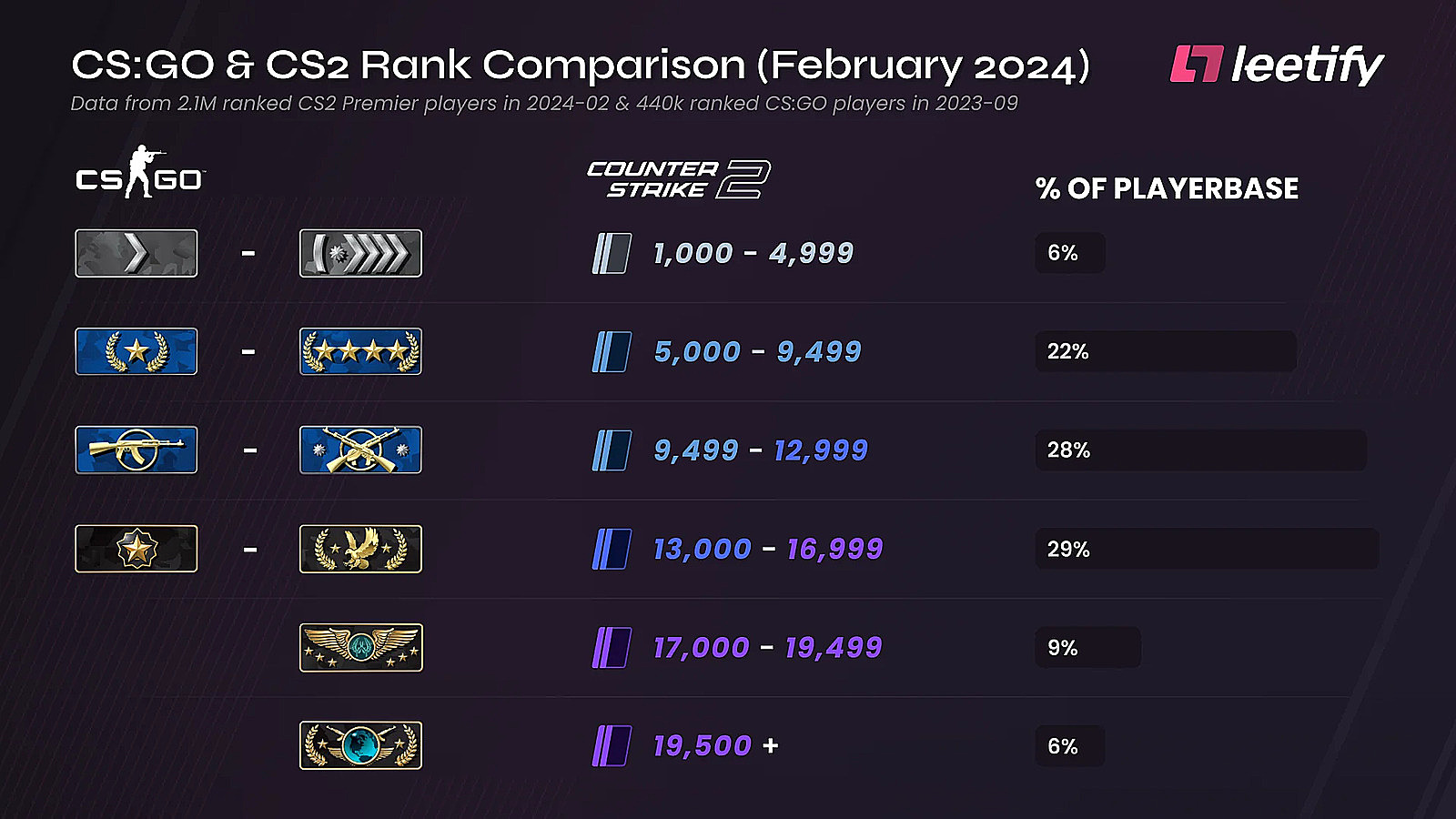79tka Insights
Your go-to source for the latest news and information.
Demystifying CS2 Matchmaking Ranks: Why Your Skill Shouldn’t Be a Mystery
Unlock the secrets of CS2 matchmaking ranks and discover why your skill level is clearer than you think!
Understanding CS2 Matchmaking Ranks: A Comprehensive Guide
In CS2 matchmaking, understanding the ranks is crucial for players looking to improve their game. The ranking system is designed to match players of similar skill levels, ensuring fair and competitive matches. Each player is assigned a rank based on their performance in competitive games, which ranges from Silver to Global Elite. The more you win, the higher your rank will climb, but losses can have a significant impact on your placement. Players should strive for consistency in their gameplay to ascend the ranks and experience more challenging opponents.
There are several factors that contribute to determining your CS2 matchmaking rank. These include your individual performance metrics, such as kills, deaths, and overall contribution to the team's success. Additionally, your win-loss ratio plays a vital role in adjusting your rank. It's important to focus on improving your skills in areas like strategy, teamwork, and communication. As you enhance your gameplay, you may notice a gradual shift in your rank, reflecting your progress and dedication to the game.

Counter-Strike is a popular tactical first-person shooter that emphasizes teamwork and strategy. One of the most sought-after items in the game is the karambit blue gem, known for its striking design and rarity among players. Its unique appearance makes it highly desirable, showcasing the artistry of weapon skins in the game.
Top Factors Influencing Your CS2 Matchmaking Rank
Competitive play in CS2 is heavily influenced by several key factors that determine your matchmaking rank. First and foremost, your individual skill level plays a crucial role in how you perform against other players. This includes your aim, game sense, and ability to communicate effectively with your team. In addition, match history is another pivotal factor; a consistent winning streak can elevate your rank, while repeated losses can lead to a decline. Other aspects, such as your in-game roles and team composition, also contribute to your overall performance. It’s important to understand that matchmaking systems assess not just individual skill, but also how well you synergize with your teammates.
Another significant influence on your CS2 matchmaking rank is behavior and conduct during matches. The community values players who demonstrate good sportsmanship, and negative behavior can be penalized. Reports from teammates about toxicity or disruptive actions can impact your rank over time. Additionally, your activity level in the game can also affect your matchmaking experience. Players who frequently participate in matches are more likely to see fluctuations in their ranks, as the system continuously adapts to their current skill and recent performance. To maintain a healthy rank, it’s essential to focus not only on improving your skills, but also on fostering a positive gaming environment.
Why Does Your CS2 Skill Rank Matter? Common Misconceptions Explored
Your CS2 skill rank is often seen as a definitive measure of your ability, but many players hold misconceptions about its actual significance. For some, it serves as a badge of honor, while others might view it as a limiting factor that dictates their potential. Contrary to this belief, skill ranks are not the sole indicator of a player's capabilities. Factors such as teamwork, strategy, and communication play crucial roles in overall performance. Ideally, your rank should be regarded as just one aspect of your gaming identity, not the entirety of it.
Moreover, it's important to understand that CS2 rank fluctuations are common and can happen for a variety of reasons. Many players wrongly assume that a drop in rank indicates a permanent decline in skill or potential. In reality, even experienced players can face challenging streaks based on factors like connection issues, team composition, or even day-to-day variance in performance. Thus, rather than fixating solely on your rank, consider embracing a broader view that appreciates skill development and the learning process within the game.